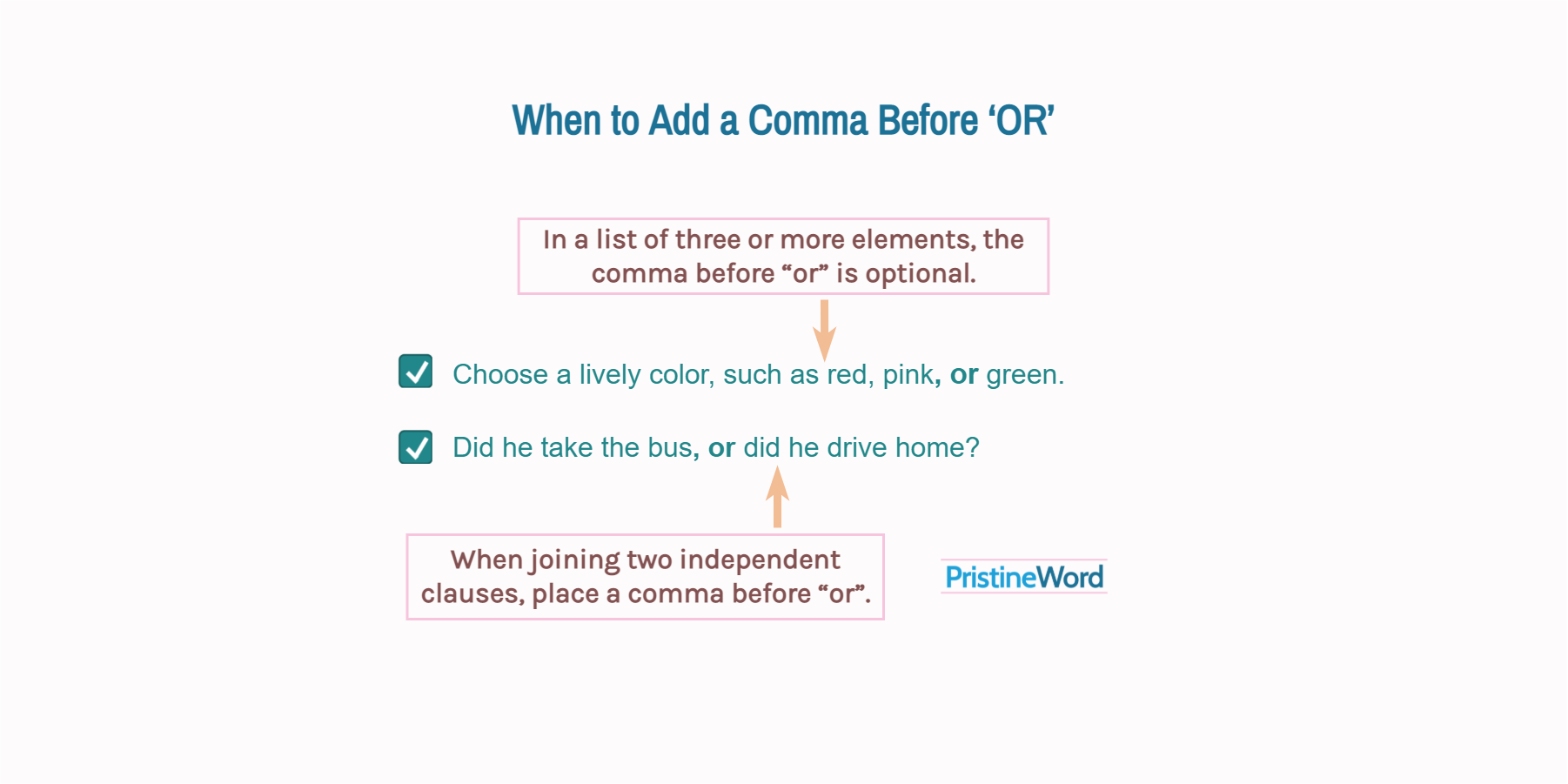When joining two independent clauses, place a comma before “or”. If the subject does not appear in front of the second verb, a comma is generally unnecessary.
In a list of three or more elements, the comma before “or” is optional.
Choose a lively color, such as red, pink, or green.
When joining two independent clauses, place a comma before “or”.
Did he take the bus, or did he drive home?
Did he take the bus or did he drive home?
If the subject does not appear in front of the second verb, a comma is generally unnecessary.
Many investors need to sell liquid assets or protect their positions.
Exceptions? We should always use a comma to clarify or avoid ambiguity.
Contents
1. Comma Before 'And' in a List
1.1 Lists of Two Items
If a list contains just two elements, do not use a comma before “or”.
I need a desktop computer or a laptop.
I need a desktop computer, or a laptop.
Two more examples:
Do you prefer it weak or strong?
Whether you prefer drinking tea or coffee, do not become addicted to it.
1.2 Lists of Three or More Elements
Using a comma before “or” in a list of three or more elements is optional.
Sports such as boxing, rugby, or bull riding are dangerous and difficult to play.
The final comma in a list of things, also known as the Oxford comma or serial comma, is common and sometimes mandatory in American English. Some British style guides, however, do not recommend it. Although it is a stylistic choice whether to use it, you should try to be consistent in your document.
I want to buy a ring made of precious metals, such as gold, silver, or platinum.
However, always use a comma to remove ambiguity or avoid confusion.
You can choose black and red or white and blue.
You can choose black and red, or white and blue.
2. Using 'Or' With Clauses and Phrases
2.1 Use a Comma Before 'Or' to Join Two Independent Clauses
We can use the conjunction “or” to join two independent clauses—an independent clause can form a complete sentence standing alone and has a subject and a verb.
Did Peter go to Chicago, or did he stay in New York?
Did Peter go to Chicago or did he stay in New York?
There is an exception to this convention of using a comma to join two independent clauses with “or”. If the sentence is clear and both clauses are short, you can omit the comma.
I'll give you $10,000 for the car. Take it or leave it.
Be aware that imperatives ("take it" and "leave it" in the example above) are independent clauses. Although they do not have a subject, a command is given to an implied second person.
2.2 You Can Skip The Comma If the Subject Is Not in Front of the Second Verb
If the second part of the sentence is not an independent clause; that is, it is not an imperative and the subject is not in front of the verb, a comma is often unnecessary.
You should buy bonds or invest in gold.
But you may need to place a comma before “or” when using particular sentence structures. For example, use commas to set off nonessential information in mid-sentence.
You can edit your article, or create a new one, before publishing it.
Note that if we remove "before publishing it", the second part of the sentence ("or create a new one") would become essential, and the comma would be unnecessary.
You can edit your article or create a new one.

